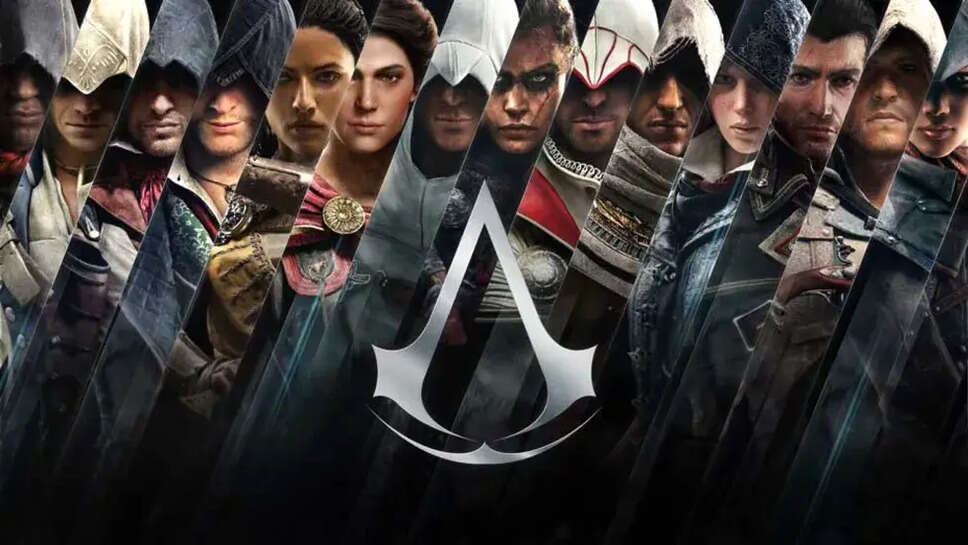Assassin’s Creed live-action series confirmed by Netflix

Netflix has announced a bold step into the world of historical science fiction and parkour-infused adventure by adapting the globally popular Assassin’s Creed video game franchise into a live-action television series. The partnership promises to blend the rich lore of the games with high-quality, serialized storytelling that Netflix is known for. Fans of the franchise, which has captivated millions since its 2007 debut, now eagerly await how the Animus, the Assassins, and the Templars will come to life on screen.
🧬 From Console to Camera
The Assassin’s Creed series has always been cinematic in its design—elaborate historical settings, philosophical conflicts, epic fight sequences, and futuristic intrigue. Now, Netflix aims to transform this immersive experience into something that can be consumed in episodic form.
The plan to adapt Assassin’s Creed into live-action reflects Netflix's growing strategy of turning iconic gaming properties into rich entertainment universes. Following the success of shows like The Witcher and Arcane, Assassin’s Creed offers a unique blend of stealth, history, and science fiction, setting it apart from other game adaptations.
📜 A Legacy of Time-Hopping
At its core, Assassin’s Creed is not just a tale of hidden blades and rooftop chases—it's a multi-layered story about freedom versus control, rebellion against tyranny, and the intersection of past and future.
Each game in the franchise revolves around a central character reliving the memories of their ancestors through the Animus, a powerful device that allows modern individuals to experience lives lived centuries ago. From Renaissance Italy and Ancient Egypt to Victorian London and Revolutionary America, the series spans nearly every major historical period.
The Netflix adaptation has the opportunity to explore these diverse settings while weaving in original storytelling threads. Whether it will follow a game-specific storyline or introduce new characters within the existing lore remains to be seen.
🧠 Storytelling Potential: Infinite Threads
The richness of Assassin’s Creed’s timeline offers a sandbox of possibilities for the showrunners. The franchise is known for its ability to juxtapose the personal struggles of assassins like Ezio Auditore, Bayek, and Kassandra with grand historical movements and figures.
The show might lean on one of the most beloved story arcs—Ezio’s journey through Renaissance Italy—or it may take creative liberty to craft a new protagonist and time period. With the flexibility that Netflix offers and the open structure of the Assassin’s Creed universe, the show can leap across centuries in a single season or even episode to reflect the time-hopping nature of the Animus.
🔧 Production and Expectations
While no full cast list or director lineup has been confirmed, fans expect a production that stays true to the visual flair of the franchise—sweeping aerial views of ancient cities, elaborate costume design, and choreographed action that echoes the fluidity of the games’ movement system.
High expectations ride on the action choreography, stealth sequences, and emotional depth of the characters. Past attempts at adapting the series, including a 2016 feature film, were met with mixed reactions due to lack of narrative cohesion and underdeveloped characters. Netflix will be looking to correct this with a more layered and slow-burn approach.
💥 A Franchise with Global Reach
Assassin’s Creed isn’t just another video game—it’s a global phenomenon. With over 200 million copies sold worldwide and a legacy spanning consoles, novels, comics, and films, it offers Netflix a built-in fanbase. The franchise has long been appreciated for its educational value as well, introducing players to detailed reconstructions of cities like Constantinople, Paris, and Alexandria.
The series can capitalize on this global appeal by casting a diverse range of actors and filming across various international locations to capture the authenticity of historical settings. If executed well, the show could be a cultural crossover hit—not only among gamers but also among fans of period dramas, science fiction, and espionage thrillers.
📺 A New Era for Game Adaptations
Netflix has been increasingly invested in bringing video game worlds to television. The success of The Witcher—though based on novels—owed a lot to its game fans, while Arcane, based on League of Legends, broke records and received critical acclaim. The streaming giant seems determined to correct the historically poor reputation of game-to-screen adaptations.
Assassin’s Creed could stand at the intersection of prestige drama and pop culture spectacle. If it finds the right balance between lore fidelity and accessibility for newcomers, the series could not only resurrect faith in game adaptations but redefine the genre entirely.
🎯 What Fans Want
Long-time fans of the games have clear hopes for the series:
-
Authentic combat and stealth mechanics: Fans want the hidden blade to feel iconic and movement to reflect the silent grace of assassins.
-
Meaningful historical context: The games are as much about history as action. Integrating real-world events and figures will be essential.
-
A compelling protagonist: Whether original or from the games, viewers want a character arc with emotional stakes.
-
Balanced modern storyline: The modern-day segments have always been divisive. The show has a chance to unify both timelines effectively.
🔮 The Road Ahead
With development underway and anticipation building, the Assassin’s Creed live-action series is poised to be one of Netflix’s most ambitious adaptations to date. It carries the burden of expectation from both passionate gamers and curious viewers unfamiliar with the franchise.
The storytelling potential is massive, the universe is expansive, and the appetite for such content is stronger than ever. Whether Netflix can deliver a faithful, entertaining, and emotionally resonant experience will determine whether this is the beginning of a long-running saga—or another misfire in the realm of adaptations.
